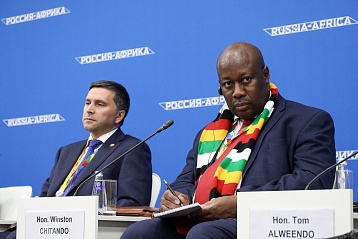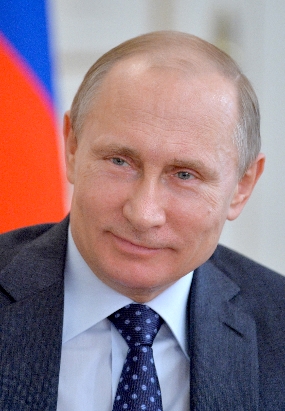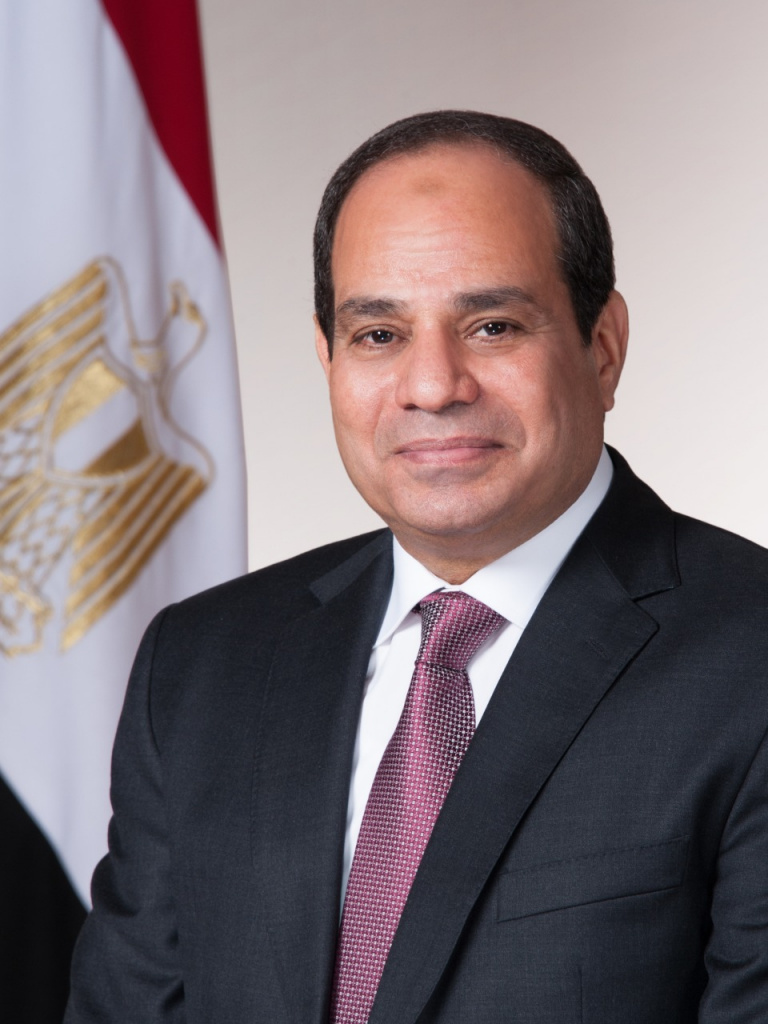Russian–African Collaboration in the Diamond Industry

KEY CONCLUSIONS
Russia and Africa are diamond mining leaders
“Together, we (Russia and Africa – Ed.) essentially have majority stake in the global diamond mining industry. Taken together, Russia and Africa control approximately 75% of the industry,” – Yury Trutnev, Deputy Prime Minister of the Russian Federation – Presidential Plenipotentiary Envoy to the Far Eastern Federal District of the Russian Federation.
“Russia is in first place when it comes to diamond reserves, mining, and export. It has over 1 billion carats in reserves, mines over 43 million carats <...> The majority of diamonds mined in Russia are exported. Its primary export destinations are Belgium, India, and the United Arab Emirates,” – Dmitry Kobylkin, Minister of Natural Resources and Environment of the Russian Federation.
Russia successfully cooperates with African countries in the diamond industry
“We see Africa as a strategic partner, a friend in our efforts to facilitate the sustainable development of the entire industry. We have a long history of friendly, tried-and-true business relations with the Republic of Angola <...> we have mining enterprises, geological exploration, we are discussing a number of technologies for the sorting and categorization of diamonds. I am certain that everything will be implemented in a way that will benefit our countries,” – Sergei Ivanov, Special Presidential Representative for Environmental Protection, Ecology and Transport.
“Angola is a country with enormous potential when it comes to diamond mining <...> We must rapidly increase diamond production, mining. <...> We are currently working with Alrosa, who is our largest partner. <...> We are currently working with Alrosa on the Luaxe project, which includes the mining of one of the largest kimberlite pipes,” – Diamantino Pedro Azevedo, Minister of Mineral Resources and Petroleum of the Republic of Angola
“We recently launched a roadmap that encompasses growing the mining industry from the current USD 2.4 billion a year to USD 12 billion per year by 2023. <...> We have recently signed a memorandum of agreement with Alrosa to participate in exploration in greenfield and brownfield areas. That joint venture is likely to be extended into other areas like the entire diamond value chain. <...> The Government of Zimbabwe would be happy to see investments in enrichment and sorting infrastructure, in order to improve the industry’s economic potential. We are also optimistic about the prospects of cooperating with Alrosa on the enrichment and sorting of diamond ore,” – Winston Chitando, Minister of Mines and Mining Development of the Republic of Zimbabwe.
PROBLEMS
Falling diamond prices
“In 2018, we saw a fairly significant drop in sales in the rough diamond market, which was accompanied by a parallel drop in prices and companies’ share prices <...> We need united, coordinated measures,” – Yury Trutnev, Deputy Prime Minister of the Russian Federation – Presidential Plenipotentiary Envoy to the Far Eastern Federal District of the Russian Federation.
“Unfortunately, the industry is currently facing new challenges <...> The first is the diamond glut <...> By last year we could already see that retailers were unable to handle the volume of diamonds in the system. Of course, we are also seeing consumer preferences and consumer behaviour change, primarily in the US and China. Unfortunately, global trade wars, especially the difficulties faced by the US and China in reaching trade agreements, <...> problems tied to the financing of major diamond cutters and polishers in India, the exit of a number of financial institutions from the diamond industry, all of this has combined to create a ‘perfect storm’ of sorts,” – Sergei Ivanov, Special Presidential Representative for Environmental Protection, Ecology and Transport.
The transformation of consumer preferences
“As we’ve researched, millennials and generation Z in the US, India, and China in particular, what’s become very obvious is that they no longer make choices based on the functional attributes of a product, or the flash image of a brand. <...> They really take into consideration the values that a brand or an industry stand for. <...> All consumers want to see responsible supply chains,” – Jean-Marc Lieberherr, Chief Executive Officer, Diamond Producers Association (DPA).
“Most of our African colleagues are remote from the realities of the changing nature of consumer expectations and consumer demand. <...> I believe that it is important to understand also that our industry, like any industry, is being disrupted by technology, the advent of artificial intelligence, and we hope that our partners and partnerships in Africa will be with us to look into the opportunities and difficulties that these new technologies bring,” – Stephane Fischler, President, World Diamond Council (WDC).
Growing production of artificial diamonds
“Lab-grown diamonds, despite occupying a relatively minor share of the retail market, have had a significant effect on falling prices and demand. <...> If we could join our efforts and, for example, make marking of artificial stones mandatory, we could split these markets and protect businesses,” – Yury Trutnev, Deputy Prime Minister of the Russian Federation – Presidential Plenipotentiary Envoy to the Far Eastern Federal District of the Russian Federation.
“The production of synthetic stones, of jewellery-quality diamonds, has grown rapidly in recent years – up to 30% annually. This is a sign that we need to systematically divide these markets. In my opinion, this issue must be addressed not just by coordinating the efforts of major diamond mining companies and the diamond cutting and polishing industry, but also through providing support on the legislative and regulatory levels,” – Dmitry Kobylkin, Minister of Natural Resources and Environment of the Russian Federation.
“If a consumer is able to clearly understand that what they're buying in one place is synthetic, and what they're buying at another is a natural diamond, then we won't have any problems competing with this market. <...> The primary risk is if it's mixed together, and synthetic diamonds are being sold as if they were natural diamonds,” – Alexey Moiseev, Deputy Finance Minister of the Russian Federation.
SOLUTIONS
Developing diamond cutting and polishing enterprises in the countries where they are mined
“Our current goal is increasing the value of diamonds mined in Angola. Accordingly, we are currently working on developing diamond cutting and polishing within our country. We expect to work alongside all parties currently involved in diamond mining, we are also going to develop our strategic cooperation with Alrosa,” – Diamantino Pedro Azevedo, Minister of Mineral Resources and Petroleum of the Republic of Angola.
“We figure out how we can leverage diamonds to help other sectors of the economy. <...> There are statistics that suggest that more than 50% of global diamond production comes from the African continent, except, unfortunately, less than 20% of the total diamond value chain remains on the continent. That, for us, is a concern and challenge for the future,” – Tom Alweendo, Minister of Mines and Energy of the Republic of Namibia.
Increasing businesses’ social responsibility
“From the perspective of South Africa, an ideal state for Africa in relation to its mineral resources, including diamonds, is commitment to a legal framework that allows for exploration and mining with minimal human cost, protection of the environment, realization of the full value of these commodities, and far-reaching benefits to the people of the continent. That then forms the basis on which Russia and the African continent can form sustainable collaboration,” – Sandile Nogxina, Special Adviser to the Minister of Mineral Resources and Energy of the Republic of South Africa.
“All of the value accrued from mineral extraction must be shared across the nation <...> The state really shares the resources that accrue to the country from diamond revenue in an equal way, to distribute that as fairly as possible. But they have to go beyond that, they also have to demonstrate that in accruing all that value that it’s used in a way that is seen to be developing and enhancing the livelihoods of its people,” – Marcus Ter Haar, Managing Director, Okavango Diamond Company.
Implementing electronic marking of rough and finished diamonds
“In the Russian Federation, we are currently in the process of implementing an electronic tracking system where we will mark and register all diamonds mined in the Russian Federation into an electronic database <...> We are already in talks with our partner countries in the Eurasian community,” – Alexey Moiseev, Deputy Finance Minister of the Russian Federation.
“In order to defend our position, we must make sure that there is a differentiation between natural diamonds and lab-grown diamonds. The consumer must be able to tell what is a natural and what is a lab-grown diamond <...> Demand might slow, but I think that this is a good strategy, through which diamond producing countries can defend natural diamonds, our primary product. <...> We must capture more of the value chain, so that it remains on the continent,” – Tom Alweendo, Minister of Mines and Energy of the Republic of Namibia.
For more information, visit the Roscongress Information and Analytical System at roscongress.org


